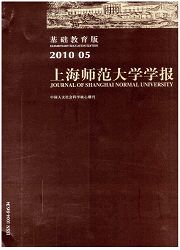

 中文摘要:
中文摘要:
汉语词汇在由古至今的发展中有变,有不变;有变化大的,有变化小的。至于为什么变,怎样变,则既有语言自身的发展规律,又有人们具体取舍的价值取向,大致上体现了言语意义←→语言意义、口语←→书面语、本土文化←→外来文化,以及社会各阶层间趋雅←→趋俗的互动共存与整合融和。汉语的文白转型广泛深刻地影响了我们整个民族的思维和演说方式,在某种程度上正体现了不同文化和不同阶层的人们使用同一种语言的必然发展趋向,即精英文化与平民文化以及本土文化与外来文化雅俗相融互补的价值取向。
 英文摘要:
英文摘要:
The development of Chinese language and the evolution from the classical Chinese to the vernacular Chinese are based on the law of language development and people' s specific acceptance. It is displayed by the interaction, coexistence and blend of the meanings of language and parol, colloquial language and written language, national culture and foreign culture, and the acceptance of formal languages and informal languages among different social classes. The evolution from the classical Chinese to the vernacular Chinese has profound impacts on the thinking and speaking mode of the Chinese nation. To a certain extent, an inevitable trend is that the same language will be used by people of different cultures and social classes, and the blend and comolement between the elite culture and mass culture, national culture and foreign culture will be generally accepted.
 同期刊论文项目
同期刊论文项目
 同项目期刊论文
同项目期刊论文
 期刊信息
期刊信息
